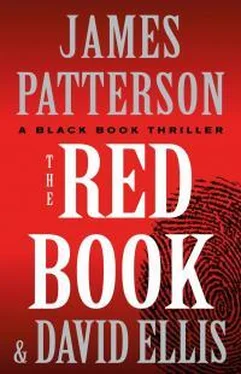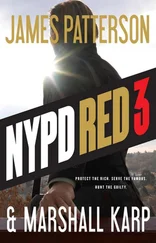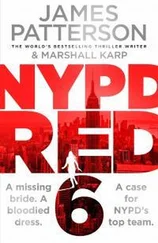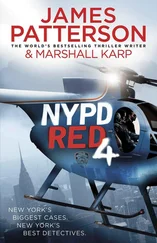Then zoomed in on the license plate. Then upward, into the vehicle, the front-seat occupants.
The windows were partially tinted, meaning that a lesser, grainier camera wouldn’t capture them. But Latham has the best equipment, one of the perks of working at Best Buy. He could see them well enough.
The guys in the front seat were white. They wore baseball caps and kept their chins down, but they were white.
He remembers the small adrenaline burst when he zeroed in on them. White people, so there was a better chance they had money, and tinted windows, meaning they were particularly careful about being seen. Latham was seeing dollar signs. These people, he was sure, would pay good money to keep this video a secret.
And then everything went wrong. With the camera toggled in nice and close on the occupants, Latham couldn’t see anything at first, but he could hear it out his window, the unmistakable rat-a-tat-tat of automatic gunfire.
Without thinking, he pressed down on the toggle, widened the frame, to see a flame shooting out from the car’s back-seat window. The occupants on the porch—Shiv and some white girl—rattled with bullets, the surrounding wood splintering from gunshots. Frisk, the courier in his Bears jersey, momentarily stunned, then turning to run. Gunfire hitting him, his back arching from the bullets as he fell face-first to the sidewalk.
It all happened so fast. Before Latham could process what he’d seen, the car was gone. And he’d captured a thirty-second horror movie on his laptop.
He was an eyewitness to the crime. He had proof, video. Now what?
His first instinct, of course—hand it over to the police. But they’d be wondering what he was doing, videotaping drug buys. What would he say? He was making a documentary? Nobody would believe that. It would take the cops two seconds to realize that Latham was blackmailing suburban drug addicts. He could go to prison.
And say the cops didn’t figure out his scheme or didn’t care. Latham would still be a witness. He’d have to testify in court. He wouldn’t be safe. His mother wouldn’t be safe. Snitches get stitches, sure, but these guys with their automatic weapons weren’t messing around. Forget stitches. They’d put a bullet through his brain.
He could send the video anonymously to the police, but with the camera angle, any halfway decent cop would figure it came from his building.
The good news—the only thing that has sustained him the last two days—is that he could always do it later. He could wait. Maybe the cops would solve it without him. This case was a big deal, right? They’d put a lot of resources into it. Yeah, he told himself, this video might not be necessary.
And there you go: within twenty-four hours, the Chicago PD identified the vehicle used in the shooting. It was in the newspaper reports, which Latham was following closely. So if they knew the car, most of what he could show them was stuff they already knew, right?
Right. He pinballed back and forth like that. They’ll figure it out; they don’t need the video. Still, the video would help—maybe they could use facial recognition on it. But it’s not Latham’s problem. He’s no cop, no avenging superhero.
And then, last night, finally—the word came that they caught the shooter.
Latham gets out of his bed, puts on a T-shirt and jeans, and wakes up his laptop. He has the photo from the newspapers, the mug shots of two young men, Prince Valentine and Damien “Junior” Peppers, enlarged before him. Two young black men.
It’s possible, he told himself. Just because the two guys in the front were white doesn’t mean the guys obscured in the back couldn’t have been Nation gangbangers. Who says black and white people can’t ride in a car together?
And what if it’s otherwise? What if the cops really did get this wrong? It’s not like Latham can bring Peppers and Valentine back to life. What good will an exoneration do them now?
The Chicago PD thinks they solved the case. Why should he tell them otherwise?
Yeah, keep telling yourself that, he thinks as he heads down the hall into the kitchen. All the rationalizing can’t remove the uneasiness in his stomach, constant since that day. And he knows why. It has nothing to do with Prince Valentine or Junior Peppers.
It has everything to do with that innocent little girl. Doesn’t she deserve justice?
He pours cereal into a bowl, stares at it. He knows he has to eat. But he can’t imagine doing so.
He hears a knock on a door. Not his door; another apartment down the hall. You can hear just about anything in this building, with its paper-thin walls. Sit in the living room after ten o’clock and you can hear the next-door neighbors going at it in their bedroom, the grunts and moans, the bedpost banging against the wall.
He hears a word that sends a shiver down his spine. “Police.”
The cops have been all over this neighborhood since the shooting. Latham’s managed to avoid them. His mother was at work when the shooting happened and has since told the officers that. Latham has never been home when they’ve stopped by. The day of the shooting, he ditched out through the alley, driving to work, even though he wasn’t scheduled to be there for several hours. He told his mother that he’d already left by the time the shooting happened. She doesn’t keep tabs on his ever-changing work schedule.
His heart begins to pound. He thinks of that little girl. Thinks of that pain in his stomach that just won’t go away.
He opens the door, peeks into the hallway. A patrol officer, a white guy, big and wide, standing by a door, making a note on a clipboard.
“Excuse me, Officer,” he calls out, realizing he’s just passed the point of no return.
Chapter 33
“HOLY SHIT,” the officer mumbles, sitting at the kitchen table, having watched the video twice on Latham’s laptop.
“You can’t see the shooter in the back seat.” Latham states the obvious. “And I’m not sure the guys in the front seat—I’m not sure you could identify them.”
“Maybe…” The officer, squinting at the laptop screen, shakes his head. “And how’d you say you got this?”
“I—like I said, I got this camcorder.” He holds up a camcorder—not his new one, in fact, but his old one. “I was trying it out.”
It’s a lie, of course, but the cop—young-looking, especially now, seemingly overwhelmed by the video he’s just watched—isn’t paying attention to the niceties of Latham’s story. “I…have to call the lead detective,” he says.
The cop sounds nervous, too. He must be new. Living where he does, Latham is no stranger to the police. He’s never gotten into any real trouble—props to his mother, whom he fears more than any cop—but he’s been questioned by cops and received plenty of cool stares from them over the years. The young ones make him more nervous than the old ones. More intense, less sure of themselves.
The cop walks down the hall and into Latham’s bedroom, pulls a cell out of his pocket, talks quietly, nothing Latham can make out.
Latham takes a breath. He’s scared, no doubt, but more than anything relieved. And convinced he did the right thing.
Still, he lied about why he shot that video. He considered going with his original lie, that he was making a documentary. But he didn’t want the Chicago PD getting its hands on his new camcorder or his laptop. They’d confiscate them as evidence. And who’s to say they wouldn’t figure out his blackmail scheme, landing him in trouble, too?
So he made a spur-of-the-moment adjustment and said he was trying out his “new” camcorder when he just happened upon a shoot-out. He realizes, in hindsight, how convenient—how ridiculous—it sounds.
Читать дальше












